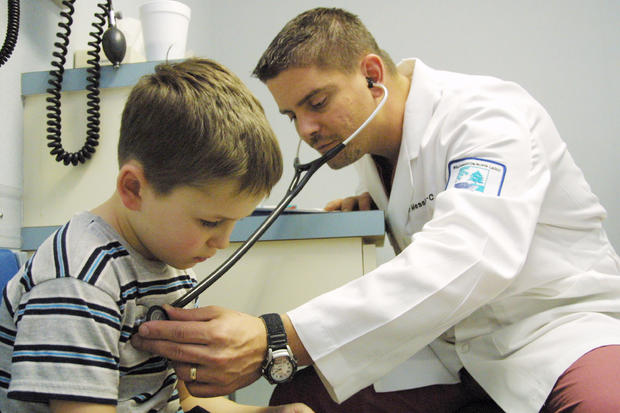Happy 'Flu' Year
(CBS4) - Have you or a loved one been knocked down by the flu yet? If not, consider yourself lucky, because you're in the minority, it seems. A lot of holiday activities went down the tanker this year.
Right now, there are three times as many cases compared a year ago. And when you crisscross America, 36 states are reporting "widespread" flu activity.
As for Colorado? Well, we are right in the middle of it. "Widespread" is too kind a word. And if it's personally visited your home, then you know the misery of Ground Zero.
It's a nasty bug, and not only is it sending people to bed for a few days as they fight fever and fatigue, the coughing that seems to be a special ingredient to this year's bug is super-violent and painful. I've had people tell me they feel like they truly are coughing up a lung.
The bug is a mean one: hospitalizations from flu complications about also triple what they were a year ago. Young kids and older folks at highest risk for pneumonia and other complications which result in a hospital stay.
(As for older people, the flu can trigger a heart attack or stroke).
What's going on? Lots of theories, but no one has been able to put a finger on it yet.
Sure, a strain coming out of Australia (Influenza A) has been a major player, especially among people who actually have gotten their flu shots, yet gotten socked anyway. It seems like this is a particularly nasty germ that's mutated into dangerous one.
This past summer, the flu shot down-under was only about 10 percent effective against one of the "A" strains. We think it's a little better here in the States this winter, but still there have been a number of flu shot failures.
But the term failure is not probably the best word. The people I see who test positive for flu despite being immunized are a lot less sick than those who skipped the shot. So a flu shot remains your best protection.
And it's not too late. The worst of the season is yet to come, so if you've lucked out so far, roll up that sleeve.
And if you still get sick, we do have come anti-viral medicine -- called Tamiflu -- that may help people recover more quickly, as long as the medication is started within 48 to 72 hours of symptoms.
As for flu etiquette, stay home if you're sick. Please stay home. Cover your mouth when you sneeze or cough. Wash down surfaces frequently. And wash, wash, wash those hands as often as you can.
As for timeframes, the bug's symptoms and contagiousness usually lasts about seven days -- and you can spread the germ (or pick it up) a full 24 hours before the first symptoms even show up!
That makes it extra nasty and sneaky this year.
Good luck and let us know how we can help you -- but the main things that work are things you can do yourself.
Dr. Dave Hnida is CBS4's Medical Editor. He blogs about the latest studies and trends in the health world. Read his latest blog entries, check out his bio or follow him on Twitter @drdavehnida




